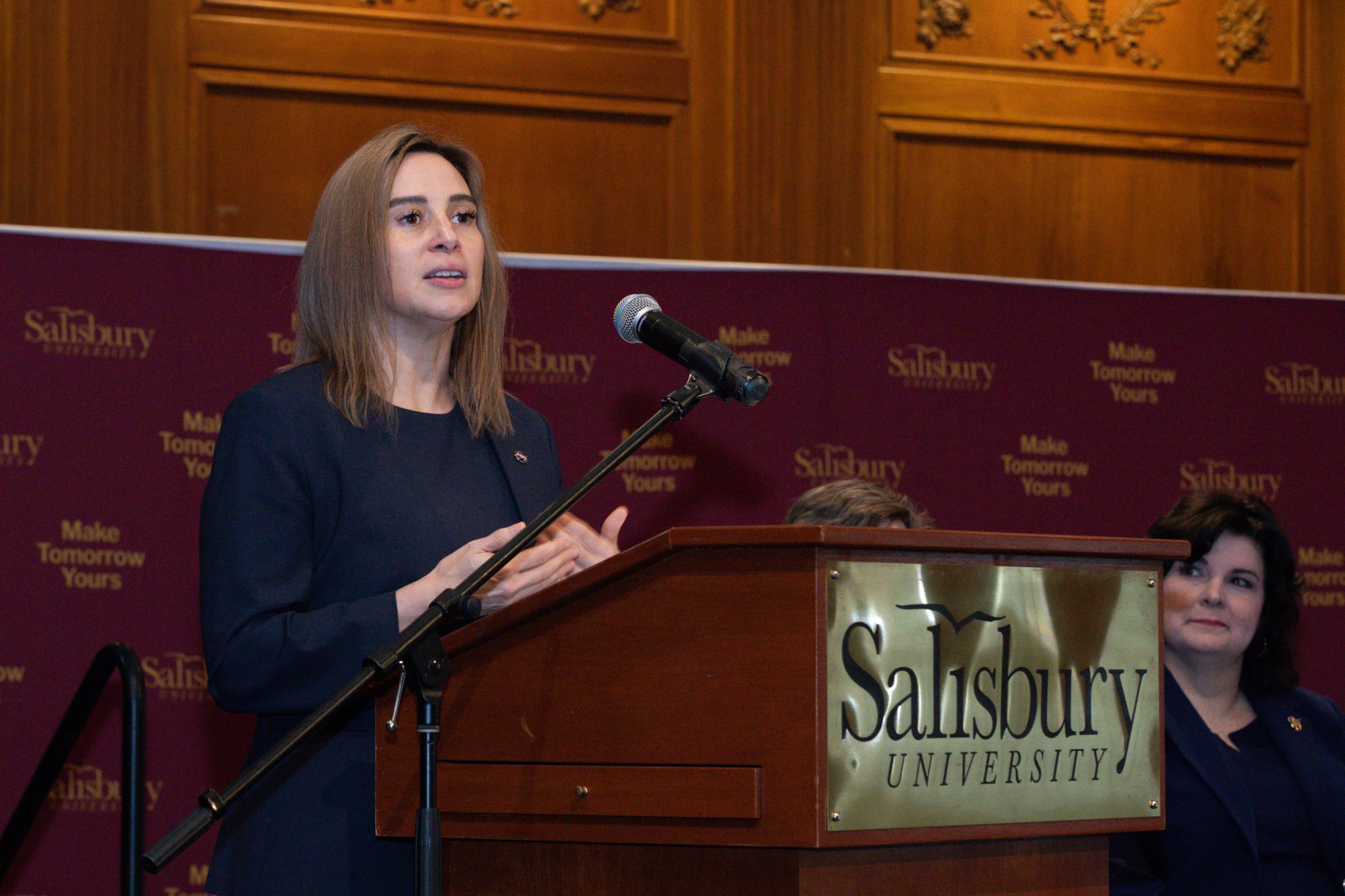2 min read
NASA and Salisbury University (SU) in Maryland signed a collaborative Space Act Agreement Thursday, March 28, 2024, opening new opportunities at the agency's Wallops Flight Facility in Virginia for students in science, technology, engineering, and mathematics (STEM) fields.

The agreement forges a formal partnership to identify research and engineering projects and activities at Wallops designed to provide SU students and professors with experiential, hands-on activities.
"Our success at NASA, now and in the future, depends on a dynamic network of partnerships focused on our mission operations and growing the next generation of innovators," said Dr. Makenzie Lystrup, center director at NASA's Goddard Space Flight Center in Greenbelt, Maryland. "NASA's partnership with Salisbury University expands our workforce development ecosystem and provides students with real-world experience in critical aerospace career fields." NASA Goddard manages Wallops Flight Facility for the agency.
The agreement also lays a framework for expanding internship opportunities at Wallops, mentoring, technical expertise to faculty, and support for job fairs and other career development programs aimed to expand awareness of careers in the aerospace industry.
"NASA Wallops has long been at the forefront of space exploration, pioneering breakthroughs that have expanded our understanding of the universe and inspired generations of scientists, engineers, and dreamers," said Dr. Carolyn Ringer Lepre, SU president. "Together, we will leverage our collective expertise, resources, and ingenuity to tackle some of the most pressing challenges facing our world today."

Wallops' conducts upwards of 50 operational science and technology missions worldwide annually launching on orbital and suborbital rockets, scientific balloons, and flying on airborne science platforms. In addition, NASA's commercial partners like Rocket Lab are increasing launch operations on the facility.
"Our operations are growing at Wallops underscoring the need for an innovative, skilled workforce to advance our science and technology missions," said Lystrup. "This agreement is helping us fill a critical workforce need to propel us into the future."






